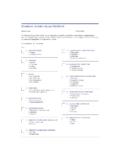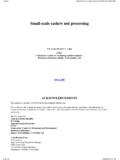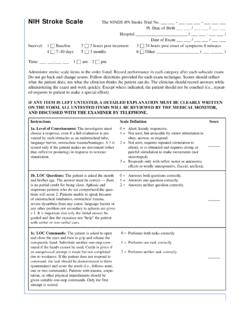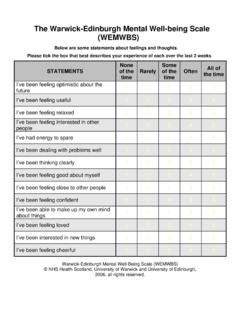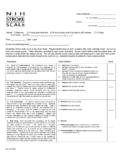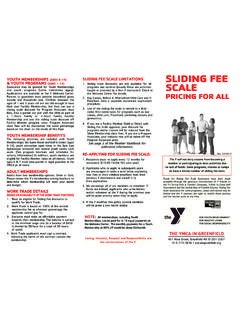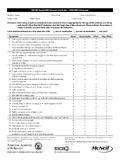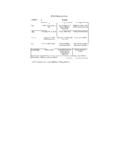Transcription of Figure 1. The Center for Epidemiologic Studies …
1 Figure 1. The Center for Epidemiologic Studies depression scale Experts who treat and study depression use a wide variety of tests and rating systems to determine a person's level of depression . The Center for Epidemiologic Studies depression scale (CES-D) is one of the most common methods for allowing an individual to determine his or her depression quotient, because it easy to understand, take, and score. This quick self-test measures a patient's depressive feelings and behaviors during the past week. The CES-D - developed by Lenore Radloff, while she was a researcher at the National Institute of Mental Health - is an effective, time-honored tool that has become a standard for identifying depression .
2 Rarely or Some or a Occasionally Most or For the following 20 items, none of the little of the or a moder- all of the please select the choice that best time time ate amount time describes how you have felt (<1 day) (1-2 days) of the time (5-7 days). over the past week: (3-4 days). 1. I was bothered by things that usually don't bother me. 2. I did not feel like eating;. my appetite was poor. 3. I felt that I could not shake off the blues even with the help from my family and friends. 4. I felt that I was not as good as other people. 5. I had trouble keeping my mind on what I was doing.
3 6. I felt depressed. 7. I felt that everything I did was an effort. 8. I felt hopeless about the future. 9. I thought my life had been a failure. 10. I felt fearful. 11. My sleep was restless. 12. I was unhappy. 13. I talked less than usual. 14. I felt lonely. 15. People were unfriendly. 16. I did not enjoy life. 17. I had crying spells. 18. I felt sad. 19. I felt that people disliked me. 20. I could not get "going". TO SCORE: Step 1: For each answer, assign the fol- Step 2: Add the total scores and refer to lowing value: this scale : 0-Rarely or none of the time (<1 day) G If the score is 22 or higher, the 1-Some or a little of the time (1-2 days) patient may be suffering from a major 2-Occasionally or a moderate amount depression .
4 Of the time (3-4 days) G If the score is 15 to 21, the patient 3-Most or all of the time (5-7 days) may be suffering from mild to moderate depression . G If the score is below 15, this test does not indicate that the patient is depressed. Reference: Radloff, (1977). The CES-D scale : A self report depression scale for research in the general population. Applied Psychological Measurement, 1, 385-401.
